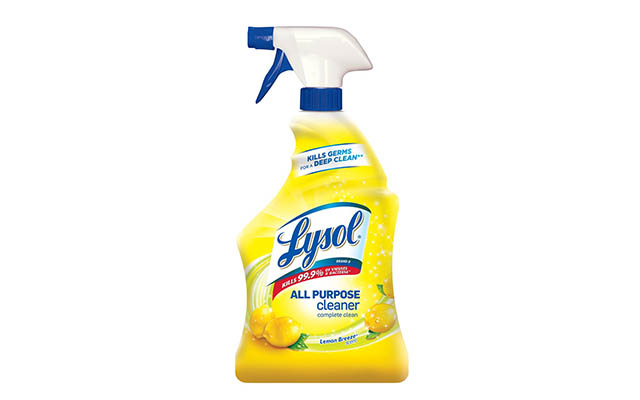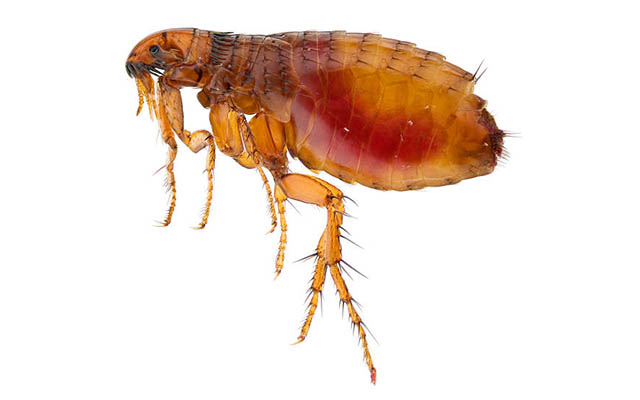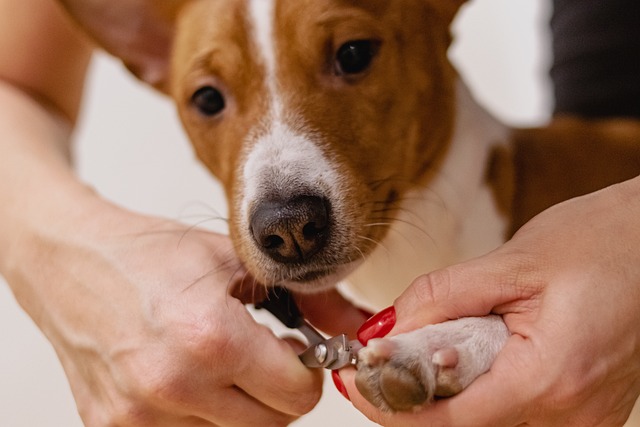
Does Lysol Kill Fleas? All You Want to Know
Yes, Lysol can kill fleas, but it requires direct contact and saturation. Are you wondering if Lysol Disinfectant can be used to kill fleas? Is it even efficient, and can it also be used to eliminate flea eggs? Pleaser read on.
You can get rid of fleas in your house by spraying Lysol in confined spaces like the space around baseboards.
Unfortunately, Lysol does not work on eggs but may work on larvae. In light of this, it is important to emphasize that killing the eggs is essential to preventing a flea infestation.
Positively, Lysol does assist in flea repulsion. Because fleas have a keen sense of smell, regularly cleaning your home with Lysol is a great way to prevent fleas from getting inside.
Table of Contents
Does Lysol Kill Fleas?
Absolutely, you can kill fleas with Lysol.
In addition to being a fantastic cleaner and disinfectant, Lysol can also be used to get rid of flea infestations.
Fleas are parasites that survive exclusively on blood. Your dogs and cats are sought after as their hosts, and they are turned into blood meals.
Most of the time, it is very challenging to completely eradicate a flea infestation.
It is possible to get bitten by fleas even though they don’t typically live on people. They typically leave a cluster of itchy bites on the skin.
How Long Does It Take for Lysol to Kill Fleas?
Lysol quickly eliminates fleas. The flea will perish within minutes after being directly exposed to Lysol.
But once more, it will take multiple applications to make sure you get every flea, including any that have just hatched.
Even though it’s important to get rid of fleas quickly, doing so takes time, patience, and effort.
The best method for killing fleas is to select a treatment that disrupts the flea lifecycle.
However, if the choice you make, like Lysol, only kills adult fleas, it will call for several applications over the course of the following few months.
Up to three months may pass before the ideal humidity and temperature are present for the fleas to hatch their eggs.
Does Lysol Repel Fleas?
Since fleas dislike the scent of Lysol, they usually stay away from areas that have a lot of it around. A great way to keep fleas away is to thoroughly clean your home with Lysol!
How Does Lysol Affect Fleas?
Although Lysol is marketed as a disinfectant spray that kills 99.9% of viruses and bacteria, it also contains flea-repelling ingredients like ethanol and several antiseptic chemicals.
Lysol can help get rid of fleas and freshen up your home, in contrast to a regular insecticide that is made specifically to kill insects.
However, Lysol will be significantly less effective when compared to common insecticides.

Is Lysol a Good Solution to Kill Fleas?
Direct application of Lysol will cause a flea’s death. Fleas are quick; keep that in mind. Lysol may not be effective against every flea. You will need to find another solution to deal with the flea eggs because Lysol does not kill flea eggs.
How to Use Lysol for Fleas?
It is possible to get rid of fleas, but it’s not as simple as you might think. It’s a lengthy process that demands a lot of patience.
Here are the steps you can follow to kill fleas with the help of Lysol:
- Decide which areas of your home are most likely to be infested.
- Spray Lysol Disinfectant Spray directly onto any fleas that you see moving around.
- To get rid of the newly hatched eggs, spray the furniture and surfaces.
- Put 2 cups of Lysol multi-action cleaner on the rugs and carpets, then grab a sturdy scrubber.
- Wash the bedding, especially your pet’s bed, in hot water and Lysol laundry detergent.
- To improve your results, perform the steps as many times as you can.
Read about Can Fleas Kill A Dog?
Safety Tips
Always take extra precautions to avoid problems. Follow these safety tips if you are considering using Lysol to kill fleas:
- Prior to using Lysol Disinfectant Spray or any other product, make sure to read and adhere to the label’s instructions.
- Avoid getting it on your body or on your eyes.
- Spraying it near your pets is not recommended.
- Keep it out of sight if you have kids at home.
- It should be kept out of the reach of kids and pets.
- In order to prevent accidents, don’t remove the label or mix it up with other products.
What is Lysol?
Lysol is a general disinfectant and cleaner that many people use in their homes. It claims to eliminate 99.9% of viruses and bacteria. It is reasonably priced and is available in many different formats, including liquid, wipes, and spray.
Almost any grocery store, drugstore, or convenience store should have Lysol, which is also simple to locate.
Other Ways to Kill Fleas
To ensure that your home and pets are totally free of fleas and flea eggs, I suggest combining several flea removal techniques.
Removing Flea Eggs
You will still have a flea problem if you get rid of all the adult fleas but ignore the eggs! Flea eggs will perish in steam. Make use of a powerful steam cleaner with a high temperature.
Thoroughly steam all furniture and carpet. Repeat as necessary until there are no longer any flea traces. Use hot water to wash your clothes, bedding, drapes, and rugs. All of the flea eggs should be destroyed by the heat.
Diatomaceous Earth
Diatomaceous Earth is a non-toxic way to kill fleas in your home. Diatoms have been crushed to make it. Although it appears to us to be a soft powder, it is actually full of microscopic jagged edges that kill fleas and other insects.
Wherever you have noticed flea activity, sprinkle it there. After a day or two, vacuum up the soil and flea carcasses. Repeat as needed.
Vacuuming
A thorough vacuuming is a good way to get rid of fleas, flea eggs, pupae, and excrement. I suggest vacuuming your carpet, rugs, and furniture every day if you have fleas in your home. Depending on your vacuum, this should get rid of 30-90 percent of adult fleas and flea eggs.
Professional Help
Contact a qualified exterminator if there are an excessive number of fleas in your house. To ensure that your pets are treated for fleas effectively, you might also want to speak with your veterinarian.
FAQs
Is Lysol Safe for Pets? (Dogs/Cats)
Lysol is not a flea deterrent. Animals should not be exposed to this disinfectant because it contains phenol. It leaves behind fumes and traces of the chemicals that can harm your pet:
- Dogs: If your dog licks something that has been treated with Lysol, it could result in burns or poisoning, particularly on the tongue. Lysol ingestion can cause indigestion, vomiting, and other problems;
- The scent of Lysol is a strong irritant to cats because they have a keener sense of smell. Compared to dogs, cats are even more vulnerable to the chemical’s poisoning. Lysol can negatively impact the liver and stomach of cats if they come into contact with it. As soon as you notice that your pet is weak, has lost its appetite, or is throwing up, you should seek immediate medical attention because these are blatant symptoms of poisoning.
Animals are more vulnerable to the chemicals we use on floors, skirting boards, etc. because they are smaller than humans. In order to properly disinfect the house with Lysol, you should keep animals outside. Following the procedure, thoroughly clean the apartment. Use water to thoroughly clean the areas that your pets frequent.
Lysol’s ingredients may vary slightly depending on the manufacturer. Before purchasing a product, carefully review the description to ensure that there are no potentially dangerous ingredients present.
Does Lysol Spray Kill Fleas on Furniture?
Fleas typically reside on furniture, particularly a sofa or bed where your pet sleeps. Lysol can be applied to the furniture, and it can then be thoroughly brushed and vacuumed. In cases involving animals, it is best to avoid using upholstered furniture for a few days.
Can I Spray Lysol on the Dog Bed?
Even if you have a non-toxic Lysol on hand, you should keep in mind that it is not made specifically to kill fleas. It can be used to treat your dog’s bed. To completely get rid of fleas, wash it after you do it.
Can Lysol Be Used to Get Rid of Flea Eggs?
Only newly hatched eggs and adult fleas may be killed by spraying on surfaces and furniture.
Lysol has not been proven to be effective in destroying flea eggs.
Much more difficult than killing adult fleas is getting rid of the eggs. If there are still flea eggs lying around your house, all of your efforts to kill them will be ineffective.
While some home owners claim that mixing Lysol with hot water does in fact destroy the eggs, others claim that it makes no difference.
Can Lysol Disinfectant Spray Be Toxic to Dogs?
Yes! The phenols in Lysol are the same as those in other household cleaning products. It is extremely toxic to dogs but can instantly kill viruses and bacteria.
You must contact the vet right away if your dog or cat comes into contact with Lysol or, even worse, ingests it.
Due to the toxic ingredients in lysol, dogs can develop severe oral and gastric ulcers that can be fatal.
Conclusion
Lysol and other products frequently work best in the early stages of a flea infestation.
If you believe that your flea infestation is already too severe to be treated at home, professional assistance may be required.
Fortunately, you can get rid of fleas and stop them from returning with the assistance of reputable pest control companies.

![10 Best Dog Food for Pitbulls: Top Picks [2023]](https://www.betterdoggy.com/wp-content/uploads/2022/12/The-Best-Dog-Foods-for-Pitbulls.jpg)
![6 Best Conditioner Poodle: Top Picks [2023]](https://www.betterdoggy.com/wp-content/uploads/2022/12/Best-Conditioner-Poodle.jpg)
![Bark Bright Dental Kit Reviews: All You Want to Know [2023]](https://www.betterdoggy.com/wp-content/uploads/2022/12/Bark-Bright-Dental-Kit-Reviews-All-You-Want-to-Know-2023-2.jpg)
